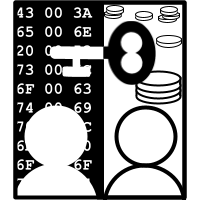Blockchains are typically open source projects, and like any other software project they require updates and improvements. A key question, then, is: who decides which updates are accepted or rejected if that control is nominally 'decentralized'? What’s the right way to think about how to make governance decisions for a blockchain? How do you change and evolve protocols and norms? These questions frame a rich social choice problem with interesting dynamics: what is fixed, and what can be changed? Research topics include dynamic social choice, the role of a supermajority in amending rules, combinatorial social choice, futarchy, community decision making, and prediction markets.
Professor David Parkes - "We have investigated governance dynamics on several prominent chains including Bitcoin, Ethereum, and Tezos. Notable events have included sub-communities of these projects splitting off entirely due to a disagreement over a technical update: Bitcoin Cash and Ethereum Classic are examples. The block size debates have been particularly clean to analyze from a social choice perspective because the preference of each participant is well-modeled through a single continuous parameter. Similarly, we've found that the Ethereum “difficulty bomb” plays a role easily explained with theory. The credible threat of the chain slowing to a halt plays a role in generating consensus-for-change, as it ensures the status quo chain cannot remain preferred in the long term and that some fork must occur. Looking forward, we are excited to see how DAOs will change our understanding of asset governance."

